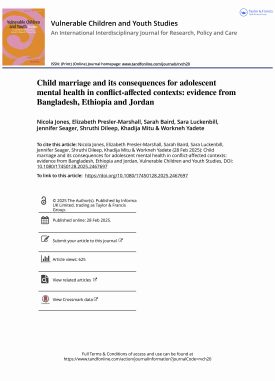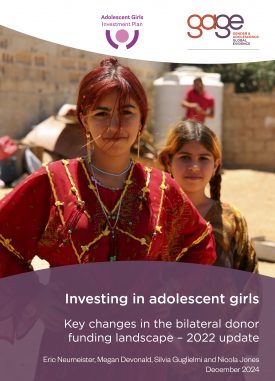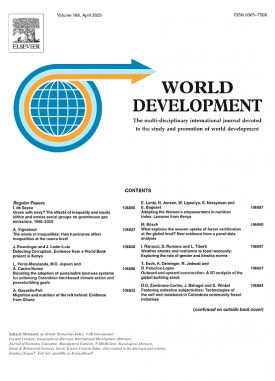Sustainable Development Goals (SDGs) 1 and 2 aim to eradicate poverty and hunger in all their forms. However, the onset of the Covid-19 pandemic and subsequent lockdowns has disrupted progress toward achieving these goals. Despite considerable attention to the effects of the pandemic on poverty and food insecurity, there has been much less attention to the experiences of forcibly displaced adolescents during Covid-19 lockdown measures. This article addresses this evidence lacuna by drawing on mixed-methods data collected through phone-based surveys (n = 4,319) and in-depth qualitative interviews (n = 191) carried out in 2020 with adolescents (aged 12–19 years) from host and refugee communities in Jordan and Palestine. We also examine whether social protection has been able to mitigate the worst effects of food and economic insecurity on adolescents from host and refugee communities. We found that a significant proportion of adolescents experienced reduced diet diversity and food insecurity during the Covid-19 lockdown in autumn 2020 in both Jordan and Palestine. Adolescents with the worst economic and food security outcomes also had poorer self-reported physical health, lower resiliency scores, and higher levels of anxiety and depression. In Palestine, social protection measures contributed less to mitigating the negative consequences of the pandemic, whereas in Jordan—largely due to higher transfer amounts—social protection was more significant in mitigating these negative health and well-being consequences. Priority actions for getting adolescent-related SDGs back on track include scaling up emergency-responsive and age- and gender-sensitive social protection, especially for the most disadvantaged young people, including adolescents with disabilities, married girls, adolescents out of school, and young people from refugee households living in host communities, where packages of support are typically more disparate.
Suggested citation:
Abu Hamad, BA, Jones NA, Neumeister ED, Małachowska, AM. Disrupting global commitments to eradicate poverty and hunger: Covid-19 and its effects on adolescent physical and mental health in Jordan and Palestine. Adv Glob Health. 2023;2(1). (https://doi.org/10.1525/agh.2023.1833917)


